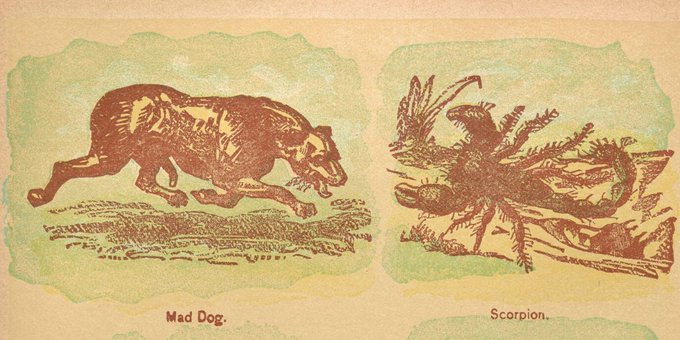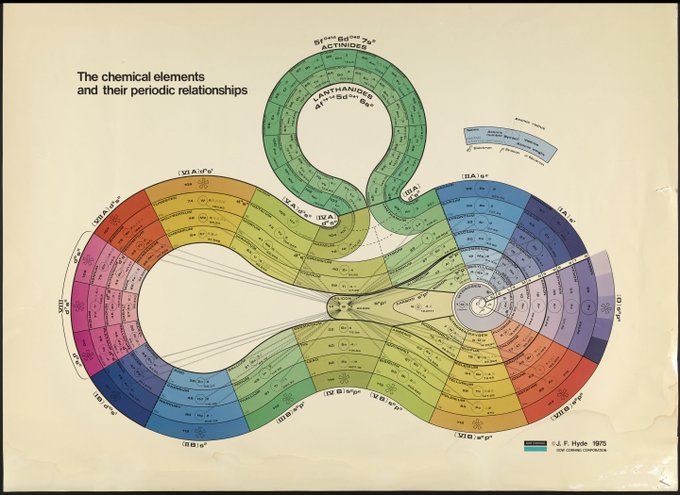OthmerLibraryのTwitterイラスト検索結果。 13 件
These #SpookyTuesday spiders come from Micrographia (1665) by Robert Hooke. Check it out on our digital collections and zoom in really close! #OthmerLibrary
https://t.co/mKv3dGkMxh
Look at all this spectacular glassware! This illustration depicts a machine from the combustion of phosphorus and appears in the 1801 book Encyclopaedia Londinensis; or, Universal Dictionary of Arts, Sciences, and Literature. #MuseumMonday #OthmerLibrary https://t.co/iNKRoditIj
#OTD in 1885, Louis Pasteur and his colleagues injected the first rabies vaccine into 9-year-old Joseph Meister, who had been severely bitten by a rabid dog 2 days before. The immunization was successful. #OthmerLibrary https://t.co/sD3hOgOxiZ
Happy birthday, Virginia Apgar! This groundbreaking physician as born #OTD in 1909. Dr. Apgar designed the Apgar Score, which is still used today to evaluate the health of infants immediately after birth. #WomenInScience #OthmerLibrary https://t.co/kBnky8fk3V
Cement is boring, right? Not according to Helinews! This wacky illustration appeared on the cover of the spring 1966 issue of the in-house publication of Beckman's Helipot Division, which featured a two-page spread about cermet trimmers. #OthmerLibrary https://t.co/78fgfNqKcT
This 1964 Iranian stamp commemorates the 1100th birthday of Abū Bakr Muhammad ibn Zakariyyā al-Rāzī, known as Rhazes, a Persian polymath, physician, alchemist, and philosopher. See more science-themed postage stamps from the #OthmerLibrary collection. ▶️ https://t.co/iJi7guc3Gc
This angry bird has some very good advice for all of us! #NationalBirdDay #OthmerLibrary https://t.co/wzpPVuOqDV
And this biplane! #OthmerLibrary https://t.co/MfNGyxzue4
Linus Pauling was awarded the @NobelPrize in chemistry #OTD in 1954. Learn more about his life and work: https://t.co/03PO0uUF6V #IYPT2019
(Image: caricature of Pauling by J.C. Weller, 1931 #OthmerLibrary https://t.co/veewV6JkR5)
Curious about the history of science in #LatinAmerica? This #ScholarSunday, we recommend giving our former research fellow @historyrocio a follow! She studies #envhist and mining in Mexico. (Image, American Vanadium Company mining camp in Peru, 1911. #OthmerLibrary)
Can you patent a living thing? The #Distillations podcast team went looking to answer that question while putting together this story of the Oncomouse. #ArchivesInventions #ArchivesHashtagParty #OthmerLibrary https://t.co/cVlcJ7FVPZ
I don't know about you, but this periodic table always makes me feel a little wibbly-wobbly timey-wimey. But you don't have to be #InTheTardis to see it! Just visit the #OthmerLibrary digital collection. #IYPT2019 https://t.co/DgpDYdoZ19
Mendeleev presented the first periodic table of chemical elements to the Russian Physicochemical Society #OTD in 1869. To celebrate, we’re sharing alternative layouts of the table from the Edward G. Mazurs Collection of Periodic Systems Images in our #archives. #OthmerLibrary













